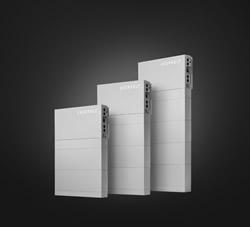Our new wave energy generator? It does exactly what it did in the laboratory
Project at FloWave Ocean Energy Research Facility aims to replicate Scotlands seas in all their complexity ---- Initiative aims to de-risk new wave and tidal prototypes, so they can perform ‘right first time when tested full-scale at sea
Two of the worlds leading ocean energy test centres have joined forces - for a ground-breaking project to recreate scaled versions of Scotlands oceans in the laboratory.
EMEC, the European Marine Energy Centre in Orkney, and FloWave Ocean Energy Research Facility at The University of Edinburgh first began working together in 2012 to share their expertise in ocean and laboratory testing.
For more than a decade EMEC has been the worlds leading test centre for new wave and tidal machines. Completed in 2014, FloWaves 25 metre circular test tank [see notes for images/ video] is the only facility in the world to combine both waves and tides.
Now they have kicked off an ambitious programme to use real-life ocean data from EMEC to replicate Orkneys seas in the FloWave tank.
"Testing full-scale ocean energy technologies at sea can be an expensive and risky business," says FloWave Chief Executive Officer Stuart Brown.
"The closer you can replicate real ocean conditions in the laboratory, the better you can refine your prototype and validate how it might perform - before testing part-scale or full-scale devices at sea.
"To date, test tanks have only been able to generate waves or tidal flows - but anyone who has been to Orkney will know, Scotlands oceans are much more complex and usually combine both. At FloWave our unique facility gives us the ability to create both waves and tidal currents at the same time," Brown says.
"This is similar to the way an airliner would be tested in a wind tunnel during development, and is a real world first for the ocean energy sector. Ocean technology developers now have a clear pathway from the computer to the laboratory to EMEC and, if required, back to FloWave again." Brown concludes.
Through the initiative, EMEC is providing a wealth of data to FloWave - gathered over years by ‘Waverider buoys, radar and ADCPs (acoustic Doppler current profilers) - which FloWave is using to develop accurate models to replicate the complex sea states encountered in Orkney as closely as possible.
This challenging work is being led by research engineer Sam Draycott, now in the third year of a four year industrial doctorate in offshore renewable energy at FloWave.
The results will be incredibly valuable, according to EMEC Managing Director Neil Kermode:
"Developing a marine energy technology is not a linear process. You may start in a test tank before you bring an idea to sea, and then once you find out what works and what doesnt, you end up back in the laboratory.
"At EMEC we have spent a lot of time recording wave and tidal data and are focussed on measuring the things that are important to developers. Our interest is in monitoring the conditions at a site, so that developers can use that data to aid their design process, and we can then validate the performance and potential power production of their technology.
"EMEC is purpose-built for sea trials with ready made test facilities, but working offshore can be expensive. Thats why it makes perfect sense to utilise the unique capabilities of FloWave to develop representative EMEC conditions in the test tank. By sharing this data, we will help accelerate learning from lab to sea and back again, and enable the UK to stay at the very forefront of this industry as it continues to mature."
Lindsay Roberts, Senior Policy Manager for industry body Scottish Renewables said:
"Real-sea testing of marine energy devices allows developers to gain a unique understanding of the way their machines work, but not everyone is ready to jump straight in at the deep end. FloWave provides real-sea conditions in the centre of Edinburgh, in all weathers and through all 12 months of the year, speeding up opportunities for the eventual deployment of devices to the sea in places like Orkney.
"Replicating EMECs sea conditions at FloWave will help developers ensure their devices are ready for Orkneys powerful waves and tides, and provide a cost-effective route to the later stages of real-world testing and eventual commercialisation."
EMEC and FloWave are the most advanced test facilities of their kind in the word. Through this collaboration they are making each centres offering even more compelling - and together they ensure the UK remains the worlds foremost destination for ocean energy research, testing and demonstration.
Featured Product

EVERVOLT home battery storage: Dependable power, with or without solar
Whether paired with solar or used independently, the renewable energy stored in an EVERVOLT home battery system serves as a reliable backup against unpredictable utility grid fluctuations and weather-related events. Keep essential appliances running longer and maintain your lifestyle during unforeseen circumstances. Our EVERVOLT battery storage systems are backed by a comprehensive 12-year warranty from Panasonic, including coverage for labor. Learn More about Panasonic EVERVOLT.
